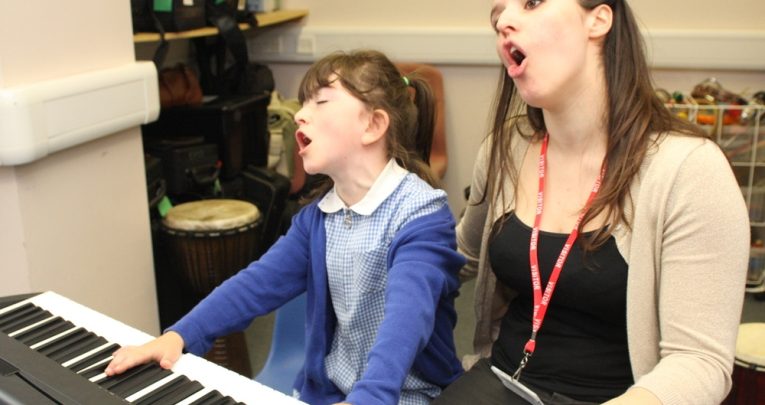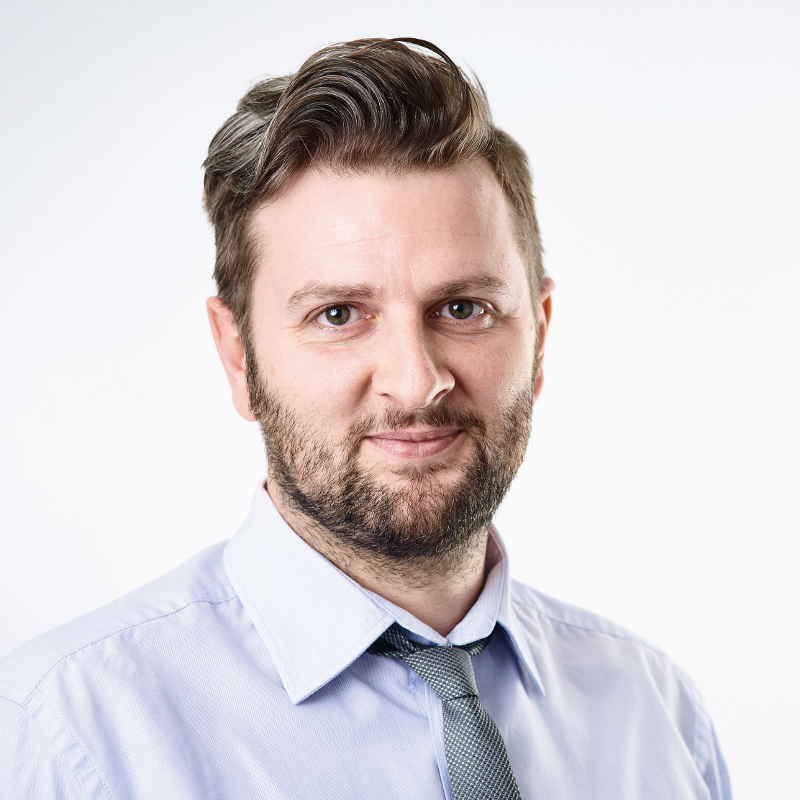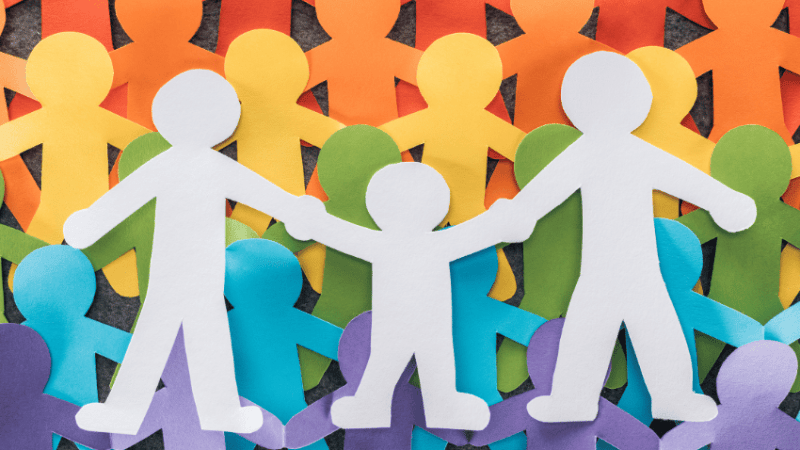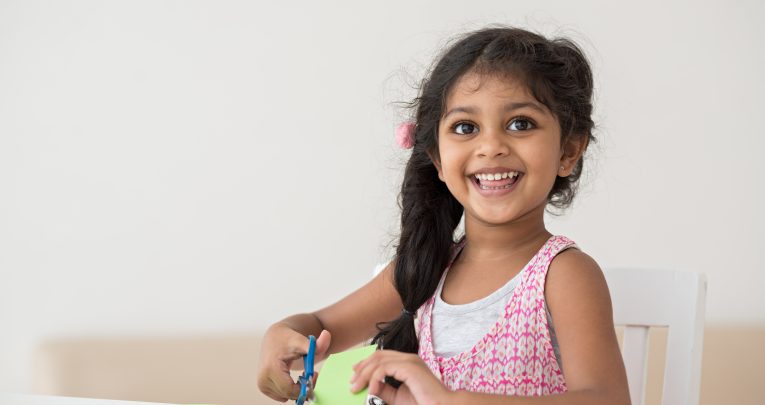How music therapy can get your class working in harmony

Music therapy is much more than a band aid. It’s a creative outlet, a means of expression and way for children to find their voice, says Lloyd Burgess…

- by Lloyd Burgess
- Former editor of Teachwire

How often does music affect your mood every day? It’s used to set a tone or create an atmosphere in pubs, clubs, restaurants and shopping centres as well as in TV shows, films, commercials and more. We even play soothing sounds to babies who have absolutely no concept what a star is, let alone why it’s twinkling like a diamond in the sky.
And, of course, we create music to express ourselves, whether you’re singing If You’re Happy and You Know It at the top of your lungs, or unwittingly serenading your neighbours with your band’s latest ‘masterpiece’. Music’s basic therapeutic qualities are in action every single day in almost infinite ways. But ask the average person what they think music therapy is, and they might struggle to think beyond those basic ideas. Where music therapy really excels is helping those who, for whatever reason, have difficulties in communicating. And one of the key groups of people who perhaps can’t, or won’t, articulate their emotions is children. Music therapy can help all kinds of young people to develop their social, emotional and communication skills – to explore and express their thoughts and feelings. And it also helps develop their concentration, coordination and confidence.
Hitting the high notes
Music therapy is an HCPC-protected (Health and Care Professions Council) profession, so there are fully qualified therapists who are devoted to, and experienced in, helping people through proven methods. One such person is Camilla Farrant, who has worked with people with autism, learning disabilities and emotional disorders for almost 10 years, and who has been working with music therapy in the mainstream education sector since 2010. Having studied the cello and piano at the Royal Academy of Music and read music at Cambridge University, she went on to take the Master of Music Therapy course at Nordoff Robbins London Centre, where she now works in the research department and lectures part time.
If that’s not enough, she has also co-authored articles, research papers and two books on the subject, is commencing a PhD back at Cambridge and she’s the founder and head music therapist of Music Therapy Tree. Clearly, this isn’t something where you can string together a few gentle chords with a child and call it therapy. Camilla started by providing music therapy in St James’ Primary in Enfield, where headteacher, Joanna Dimmock saw first-hand the positive effect her work has. “We had one girl with speech delay who was leaving us to go off to a special school,” says Joanna. “She recorded a song with Camilla that expressed all of her thoughts and fears about leaving her friends and going somewhere new.
‘Then she played her song to the class before she left, which was very emotional for all involved, and it meant that she got a great send-off that she’ll never forget.” Joanna quickly saw a wider need, and encouraged her to extend the service to children in other schools. She took the head’s advice and soon Camilla was working with a whole team of music therapists in order to meet demand. The therapists work with children to build communication skills, interaction, expression and other core skills through musical improvisation, helping them to engage positively with learning, self-expression and creativity. “When the child first walks in, the room is full of instruments, so we let them choose and experiment with whichever one they like,” says Camilla. “They lead the session. We simply guide and help them. So they play something, and we’ll respond musically, and it goes back and forth like that.
‘They learn a lot about communication and turn-taking, which can be very difficult for autistic children, and you build a bond with them through the music. It allows them to express themselves in new ways, which is great for self-esteem and self-expression. “There was one girl who had a mild learning disability and was extremely introverted; it was thought she wasn’t able to read anything more than simple words, so it was difficult for her teachers to know how much she could understand,” says Camilla. “But then one session she was improvising a song and suddenly started singing ‘Danger, danger’, because she’d seen the word on a warning sticker on the door of an electrical cupboard in the room.
I tested this with other words that I placed on the walls. I was able to report to her teachers that she was able to recognise words to a higher level, but perhaps lacked the confidence in class. The teacher could therefore adjust their view of her learning capabilities.”
Joël and Leoni
Another Enfield school that has benefited from Music Therapy Tree’s services is Prince of Wales Primary, where deputy headteacher Julia Clarke and assistant head Cheryl Redmore (who are both also music coordinators) have seen a huge turnaround in pupils’ behaviour and wellbeing. Perhaps none bigger than brother and sister, Joël and Leoni (Note – all children’s names have been changed). The young siblings had come over from West Africa with their mother, who tragically died over the summer holidays. “Coming to England was already a culture shock for them, then they had to deal with the loss of their mother,” says Cheryl. “Then, after that had to be looked after by their dad and their aunt, neither of whom they’d met before. So, in reality, they were going to live with complete strangers.” “They didn’t speak to each other about it really,” says Julia. “Leoni was manifesting her grief in loud, panicky behaviour, whereas Joël was very quiet and withdrawn. We had issues with staff, and they were even approaching people in the street to take them away because they didn’t want to go home to the dad they’d never met. And they’d be clinging on and crying.” They started music therapy immediately, and both the school and the therapist, Dejan Cacija, thought it best for them to work together to strengthen their relationship. “We wanted to them to be able to support and lean on each other through this very difficult time,” says Cheryl. “So their therapy sessions were more about communicating with each other, having positive times together, and listening to each other.” Dejan has dealt with children in similar situations before. He was formerly a chorus conductor at the National Opera Theatre in Croatia, where he also led community music projects for children affected by war trauma. “The communication and the relationship they have with Dejan, it’s just second to none. He is very good at that,” says Cheryl. “The trust between them is huge, and that’s part of why the sessions are successful. “After about six months with Dejan, the change in Joël and Leoni has been incredible. All of the crying, clinging and complaining is gone. They happily go home from school at the end of the day, and they’re not worried about it being the weekend or half term. Obviously it’s not all sorted – we’re talking about grieving children – but it’s so much better now, and we’re now looking towards getting them back on track with their learning.”
Aaron’s story
Another child at Prince of Wales Primary whose life has been turned around thanks to music therapy is Aaron. His home life is very difficult, and he has huge behavioural needs. He’s very challenging for staff, and his mother. He’s physical, and very disrespectful. Dejan noticed that in class Aaron was constantly answering back, arguing and interrupting, so he used that same technique in the workshop to help him understand what that felt like.
“If Aaron started playing something, Dejan would interrupt and play something completely different, taking no notice of what Aaron was doing,” says Cheryl. “It showed him what his behaviour in the classroom was like for others, and that was a major step forward because Aaron’s much more aware of that now, and how it affects those around him.” “Dejan did something similar with Lenny, a boy who had temper tantrums and would throw things about,” says deputy head Julia. “He took a risk and actually banged on the piano really loudly. Lenny was stunned. But he sat there in realisation and said, ‘Yeah, that’s what I do isn’t it?’. So the therapist does challenge them. It’s not a soft ‘nicely, nicely, let’s play a few tunes’ session. There’s a lot going on there to get those children to think and reflect on who they, are how they behave.” For Aaron, not only has music therapy helped his wellbeing and behaviour, it turns out that he has a natural gift. “He plays the violin and he’s really taken to it. He’s very talented,” says Julia. “And while he can still be very difficult, he’s improving through the therapy, and it’s an absolute delight for him to go. When I asked him how the therapy was going, he quite simply said: “It’s taught me how to live my life.”
Getting vocal
Because classroom teachers aren’t involved in the one-to-one sessions, when they finally get to catch a glimpse of each child’s progress it can come as quite a shock. Prince of Wales Primary has seen the social skills of children involved blossom, including children with elective mutism who wouldn’t even make eye contact. Dejan has done a lot of work with them on finding their voice through singing, as well as playing instruments. “It’s just amazing,” says Cheryl. “These children who won’t speak a word in school, they’re creating and recording songs with the therapist (with their permission, of course) and once a term we have a session where class teachers come in to listen to them. Often it’s a voice that teacher has never heard before.” “The first time we did it one of the teachers was in tears,” says Julia. “Every time, the therapist tells teachers things about their children that they did not know at all. There hasn’t been a time when a class teacher hasn’t been very humbled that this person, who has had the child for half an hour a week, has found out things that they had no idea about. That’s how strong that bond can be – all through music.” These sessions allow the therapist and teachers a chance to discuss each pupil’s progress, which in turn helps the teacher to get to know the child, and the potential of that child. “That really opens doors to access learning,” says Cheryl. “So it’s a huge interventional support system, where obviously the idea is that eventually we can transition them back into the classroom where they can succeed without it. You can’t put a ceiling on what children get out of it.”
Pitch perfect
Who can benefit from music therapy? In a word, anybody. It doesn’t matter how young or old someone is, or what musical ability they have. It’s particularly helpful for those who struggle to communicate verbally, which can often mean those with learning difficulties.
What can music therapy can help with? The British Association of Music Therapy explains that it can help develop a clearer sense of identity and autonomy, build self-esteem and confidence, encourage greater integration with other people and the community, and increase the ability to reflect on, and process feelings.
As well as this, BAMT also describes how music therapy can increase skills and abilities in communication and interaction with others, thereby reducing the need to use behaviour as a way to express distress or frustration – something that’s of particular benefit to classroom settings.
Music Therapy Tree offers music therapy to schools and also training workshops for care staff, managers, teachers and TAs. While these training sessions won’t make you a qualified music therapist, they will help develop your musical skills and awareness when working with vulnerable people. For further details, contact info@musictherapytree.org.uk









